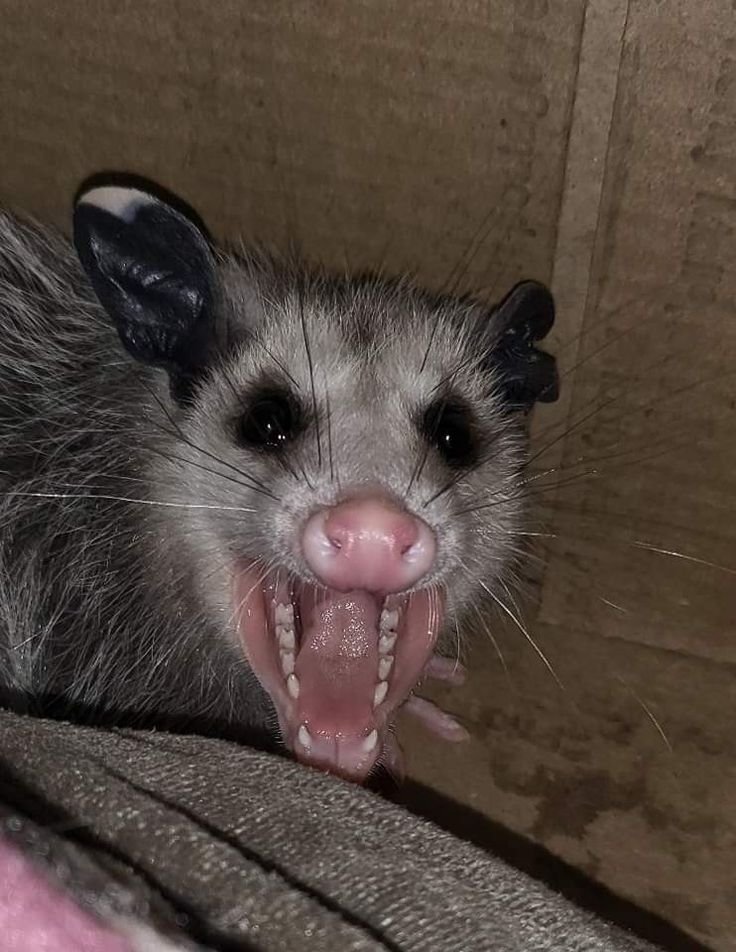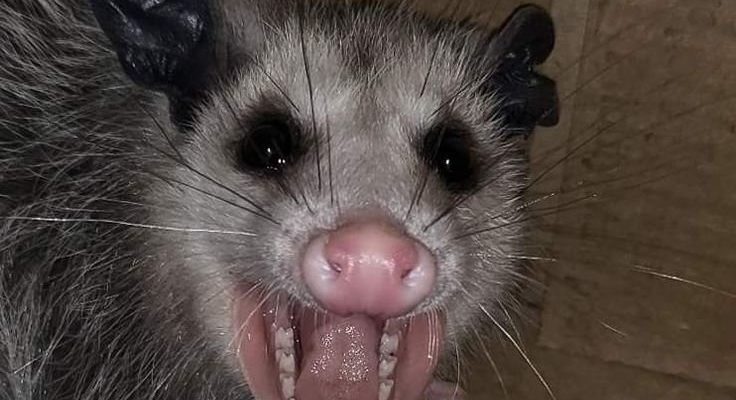
Imagine sitting down for coffee and discussing your favorite animals. When it comes to opossums, I bet you’ve heard a few tall tales, right? Maybe like how they’re dangerous or how they carry diseases. Let me explain why many of these beliefs are more fiction than fact. This isn’t a dive into the science textbooks but rather a friendly chat that aims to separate fact from fiction regarding our misunderstood friend, the opossum.
Myth 1: Opossums Are Vicious Animals
You might have heard that opossums are aggressive and will attack if threatened. Honestly, that couldn’t be further from the truth. Opossums are nature’s pacifists. When they feel cornered, they would much rather play dead than engage in a fight. Yes, you heard that right—these creatures can literally “play possum!” They enter a state of shock when threatened, which makes them appear lifeless for hours.
In contrast to the common perception, opossums would rather avoid confrontation. If you see one in your backyard, it’s best to leave it alone; they’re just looking for food, like fallen fruit or perhaps some bugs to munch on. They’d rather sneak away than cause a scene. So, the next time someone mentions a vicious opossum, remind them of this little fact: they’re really just trying to keep the peace.
Myth 2: Opossums Carry Lots of Diseases
You might be surprised to know that opossums are not the disease-ridden creatures many people believe them to be. In fact, these unique marsupials have a natural immunity to common diseases like rabies. This makes them less likely to carry viruses compared to other animals, such as raccoons or bats.
So, why the fear? Opossums have a reputation because they’re often found scavenging near urban areas, which understandably leads some to be wary of them. But opossums do a great job of keeping those areas cleaner. They eat pests like ticks, cockroaches, and even mice. By controlling the population of these critters, they help reduce the risk of disease. So, while some think of them as disease carriers, they might actually be nature’s little health protectors.
Myth 3: Opossums Steal Pets’ Food
Have you ever seen an opossum eating from your pet’s bowl? It can be a startling sight! However, the assumption that they’re stealing food is quite misleading. Opossums are opportunistic feeders, which means they will munch on whatever is available. If your dog’s food bowl is left out, they see it as a buffet option rather than an act of theft.
Instead of viewing opossums as thieves, think of them as clean-up crew members. They’ll eat leftovers and help keep our yards tidy. If you want to avoid unwanted visits, try feeding your pets indoors and store any pet food securely. But know this: those opossums are just trying to find a meal, not plotting to steal anything from your furry friend.
Myth 4: Opossums Are a Threat to Humans
You might be wondering if opossums pose a risk to your safety. The short answer is no—they’re not a threat to humans at all. In fact, they’re generally shy and prefer to avoid people. Unlike some other wildlife, they won’t confront humans and are more likely to flee if they come too close.
Their roles in the ecosystem are quite beneficial, helping control insects and pests. You might even say they’re little guardians of our gardens. If you come across one in your yard, remember they’re more scared of you than you are of them. Instead of feeling threatened, appreciate the quiet role they play in maintaining balance in the environment.
Myth 5: Opossums Are Rat-Like Creatures
When people think of opossums, they sometimes compare them to rats or other vermin. While they’re often found foraging, opossums are in fact marsupials—which is a whole different ball game. Opossums are the only marsupials found in North America, and they’re more closely related to kangaroos and koalas than to rodents.
If you take a closer look, opossums have unique features that set them apart. They have a long, hairless tail that helps them balance and occasionally climb, and their distinctive white face with pointed ears adds to their charm. Instead of lumping them in with pests, let’s appreciate the unique characteristics that make opossums special.
Myth 6: Opossums Are Harmful to Gardens
Many people fear that opossums will raid their gardens and destroy plants. It’s understandable; after all, who wants a garden in shambles? However, opossums are actually beneficial to gardens. They feast on slugs, grubs, and other pests that may wreak havoc on your plants.
Think of them as helpful little allies. While they may nibble on some of your garden’s offerings, their overall impact is more positive than negative. To keep them from getting too cozy, consider using barriers or natural repellents, which will help protect your plants while still allowing these critters to do their pest control work.
Myth 7: Opossums Can’t Be Helpful to Humans
Lastly, people often overlook the positive impact opossums can have in urban settings. They play an important role in the ecosystem, as they help regulate pest populations. Their diet includes ticks, which are notorious for spreading Lyme disease. By eating them, opossums reduce the number of ticks in an area, ultimately benefiting us humans.
Additionally, opossums are low-maintenance animals. They adapt easily to different environments, and their presence in urban areas can signify a healthy ecosystem. So, instead of ignoring them or viewing them with disdain, we should appreciate their contributions.
In summary, opossums are incredibly misunderstood creatures. They’re not the pesky nuisances that many believe them to be but instead play a vital role in our environment. By learning more about these fascinating animals, we can help demystify them and foster a more accepting attitude toward them in our backyards. So, the next time you see an opossum, remember: they’re just doing their part in the grand scheme of things!

